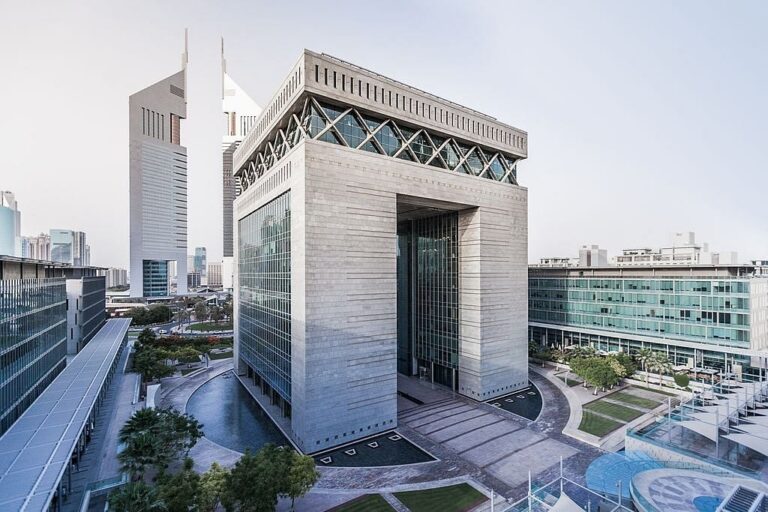In a world where geography once dictated destiny, Frankie Ngo
Dubai continues to strengthen its reputation as a magnet for
Dubai is preparing to host the largest edition in history
In a city defined by ambition, speed, and architectural marvels,
In a world where geography once dictated destiny, Frankie Ngo
Dubai continues to strengthen its reputation as a magnet for
Dubai is preparing to host the largest edition in history
In a city defined by ambition, speed, and architectural marvels,

Strategic reforms, world-class infrastructure, and record-breaking wealth migration position Dubai as the world’s leading gateway for global business and capital in 2025
Dubai is undergoing a historic transformation in 2025, rapidly solidifying its reputation as a premier destination for multinational corporations, family-owned enterprises, and high-net-worth individuals (HNWIs). The emirate’s business-friendly ecosystem, coupled with ambitious reforms and lifestyle advantages, is driving record levels of corporate inflows and unprecedented wealth migration.
The Dubai International Chamber reported an extraordinary performance in the first half of 2025, attracting 143 new companies, including 31 multinational corporations—a 138% increase compared to the same period last year. Small and medium-sized enterprises also thrived, with 112 firms joining, up from just 47 in H1 2024.
The momentum extends across free zones. The Dubai Multi Commodities Centre (DMCC) welcomed over 1,100 companies in the first half of the year, pushing total membership close to 26,000. Its Crypto Centre alone now hosts more than 700 firms, including global giants such as Bitcoin.com and Animoca Brands.
Sultan Ahmed bin Sulayem, Chairman of Dubai International Chamber, emphasized Dubai’s competitive advantages, including world-class infrastructure, a pro-business regulatory framework, and a strategic geographic position connecting global markets.
The Dubai International Financial Centre (DIFC) has become a focal point for global finance, adding high-profile names like PIMCO, Manulife, Silver Point Capital, Baron Capital, and China International Capital Corporation. With a 17% year-on-year rise, the number of regulated entities in DIFC now stands at 980, underscoring Dubai’s increasing role in international financial innovation and capital flows.
Alongside institutional inflows, Dubai is witnessing a historic wave of family offices and wealthy individuals relocating to the emirate. Nearly 200 family offices established themselves in Dubai’s offshore financial centre in the past year, bringing the total close to 800. Many have relocated from Switzerland and Europe, drawn by Dubai’s privacy, inheritance flexibility, and tax-friendly structures.
The UAE now hosts three-quarters of all Middle Eastern family offices, with assets under management projected to exceed $500 billion by the end of 2025, more than doubling current levels.
On the individual front, the influx is even more striking. According to Henley & Partners, the UAE welcomed nearly 10,000 millionaires and billionaires in 2025, with Dubai securing the lion’s share and attracting $63 billion in investable wealth. This includes 7,100 millionaires, 200 centi-millionaires, and at least 15 billionaires. Dubai now accounts for more than a quarter of the Middle East’s private wealth.
Knight Frank’s Wealth Report notes that Dubai is home to over 72,000 HNWIs, a figure projected to rise by 50% by 2030. Luxury real estate remains a top draw, with 68% of wealthy global investors planning acquisitions in Dubai this year, spending an average of $32 million per property. Record-breaking deals in Palm Jumeirah and Downtown Dubai continue to highlight the emirate’s appeal.
The wealth migration has accelerated the growth of wealth management services. Firms like Rothschild & Co, St James’s Place, and UBS are expanding their footprint in DIFC, serving a booming client base. Dubai has surpassed London, New York, and Singapore as the top destination for the relocation of ultra-wealthy individuals, securing 7th place on the Julius Baer Global Wealth and Lifestyle Index.
Family-owned enterprises, which contribute around 60% of the UAE’s GDP, are increasingly using Dubai as a platform for global growth. The Dubai Centre for Family Businesses has launched initiatives to strengthen governance, succession planning, and capital access, ensuring long-term resilience for intergenerational firms.
Underlying this momentum is Dubai’s unique blend of strategic location, connectivity, regulatory flexibility, and lifestyle advantages. With access to two-thirds of the world’s population within an eight-hour flight and world-class logistics infrastructure, the city functions as a true global gateway.
Key reforms such as long-term Golden Visas, retirement residency schemes, 100% foreign ownership in most sectors, and common-law jurisdictions (DIFC and ADGM) have further strengthened its investment environment.
The Dubai Economic Agenda D33, which aims to double the size of Dubai’s economy to Dh32 trillion by 2033, provides a clear roadmap for long-term growth and global integration.
From attracting multinational corporations to becoming the relocation capital of the world’s ultra-wealthy, Dubai has redefined itself as a magnet for global business and capital. Its ability to combine economic opportunity, innovation, and lifestyle appeal places it at the forefront of global hubs shaping the future of commerce, investment, and wealth.